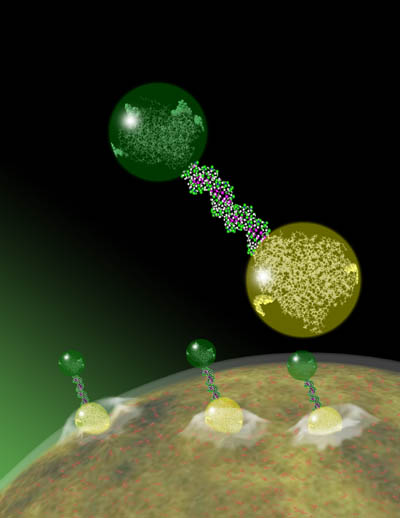Ramot, the technology commercialization company of Tel Aviv University, will receive revenues in the amount of millions of dollars

Ramot, the technology commercialization company of Tel Aviv University, signed a technology licensing agreement with the American company Champions Biotechnology.
Champions Biotechnology is a company for the development of oncology drugs with a pre-clinical platform, which makes it possible to speed up the development of oncology drugs and increase their effectiveness. If Tel Aviv University's technology matures into a product in the future, Ramot will earn millions of dollars in revenue.
The Champions company acquired the exclusive rights to the development and commercialization of TAR-1, the fruit of development by Professor Beka Solomon. TAR-1 is an antibody that binds to and restores the normal activity of the mutant p53 protein, thereby inhibiting the development of cancerous tumors. Given the high prevalence of mutant p53 in cancer, TAR1 has the potential to treat a wide variety of human cancers.
Ramot will receive payment in advance and will be entitled to receive payments and royalties in the future if Champions chooses to continue with the terms of the agreement, subject to the results of the tests incorporating the technology of Champions Biotechnology.
Champions Biotechnology is a company traded on the over-the-counter exchange in the USA (OTC) at a value of 24.5 million dollars. The company is engaged in the development of advanced preclinical platforms and the acquisition of information on certain tumors, in order to increase and accelerate the value of oncology drugs.
The company was founded by Professor David Sidransky, an American oncologist and cancer researcher. The company has developed a new approach to test the effectiveness of cancer treatments based on the implantation of primary human tumors in immunocompromised mice. Champions uses its preclinical platform to evaluate potential drugs and develop a pipeline of new drug therapy candidates.

5 תגובות
These patents are not profitable starting from the medium term and above, the probability that a patent is not profitable is equal to the probability that it will be "invented" twice during the period that the protection is granted
And this is in the pure theoretical law of corruption, since it is known that the trois of the Tents are infected with the tendency to claim everything around them and destroy productivity like a flame in a hydrogen cloud.
In a large company, Tel Aviv University would not be entitled to receive royalties for the vaccine (if produced)
The very fact that the rights were sold to a small company gives Tel Aviv University
A lot of bargaining power on the wording of the agreement between them.
I don't think there are any fools sitting there at Tel Aviv University
of genius. to create an antibody that actually causes another protein to act normally again
$6^24,5 only? ... doesn't sound like a huge company.
Was it not possible to sell the development to a leading company in the world
Drug manufacturing?
How much money was paid to the "cheats"?
And what of this will end up in the budget of the university itself?
(Note the possible "double meaning": ....to "Ramat" or "to-Ramat"....)
In short, a company that specializes in mouse diseases